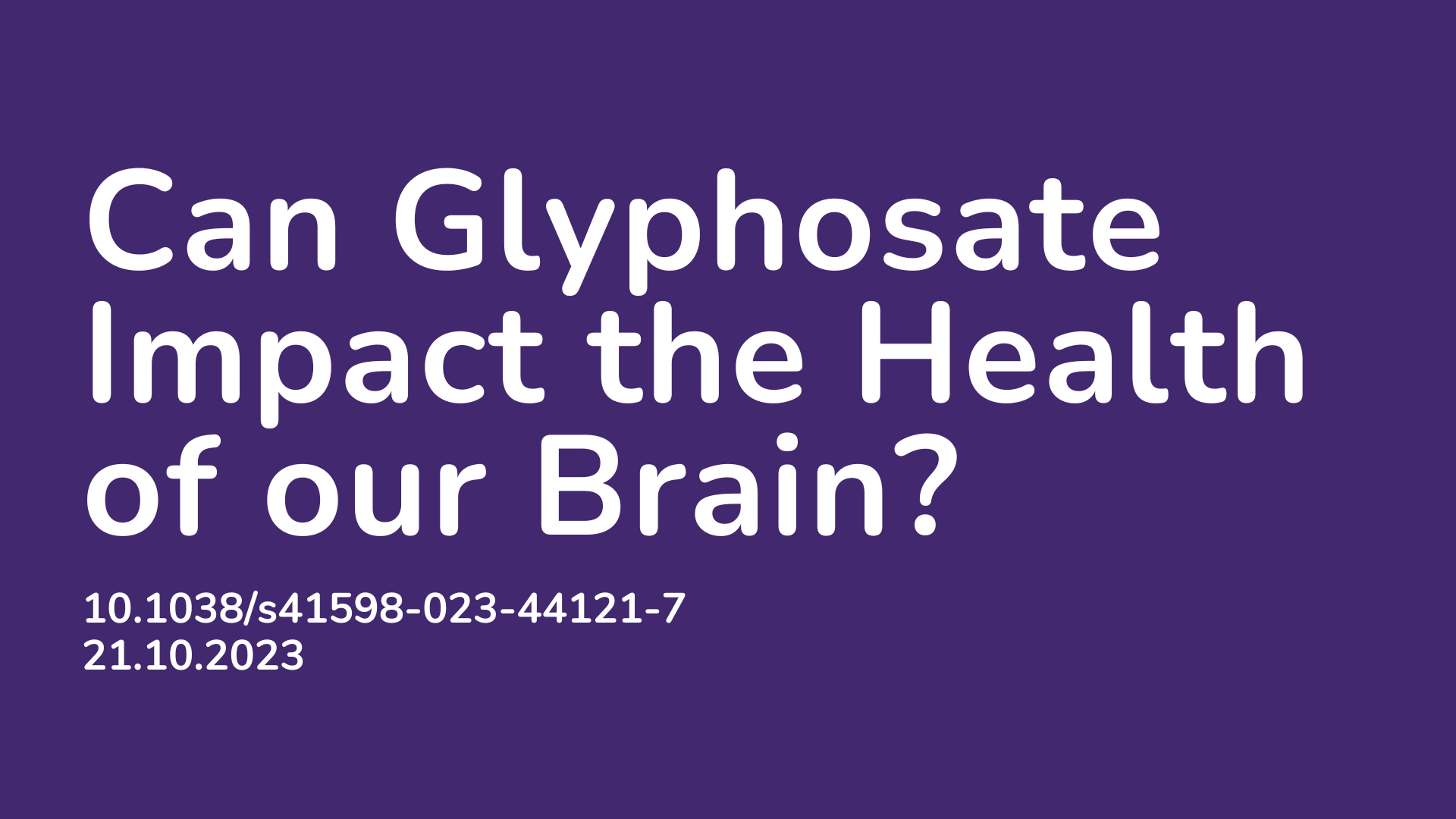Summary:
Glyphosate is a common herbicide found in products like Roundup, and is widely used in agriculture. There has been concern for decades that glyphosate is detrimental to brain health. In this study, the authors looked at how glyphosate impacts the way brain cells communicate and a process called long-term potentiation (LTP), which is important for learning and memory. The authors hypothesised that glyphosate might change how neurons work and cause inflammation in the brain. This study tested glyphosate on rat tissue, and found that it decreased the strength of signals between brain cells in a dose-dependent manner, meaning the more glyphosate, the stronger the effect. At lower concentrations, glyphosate didn’t affect basic brain function, but it did reduce the function of LTP, which impacts learning and memory. Interestingly, when the authors administered drugs that block inflammation in the brain, they reversed the negative effects of glyphosate on learning and memory. This suggests that glyphosate might affect cognition by causing inflammation in the brain. Overall, this study suggests that exposure to glyphosate could impair cognitive function by triggering inflammation in brain cells, however more rigorous studies in humans are needed.
Glyphosate, a herbicide marketed as Roundup, is widely used but there are concerns this exposure could impair cognitive function. In the CA1 region of rat hippocampal slices, we investigated whether glyphosate alters synaptic transmission and long-term potentiation (LTP), a cellular model of learning and memory. Our hypothesis is that glyphosate alters neuronal function and impairs LTP induction via activation of pro-inflammatory processes. Roundup depressed excitatory synaptic potentials(EPSPs) in a dose-dependent manner with complete suppression at 2000 mg/L. At concentrations ≤ 20 mg/L Roundup did not affect basal transmission, but 4 mg/L Roundup administered for 30 min inhibited LTP induction. Acute administration of 10–100 μM glyphosate also inhibited LTP induction. Minocycline, an inhibitor of microglial activation, and TAK-242, an inhibitor of toll-like receptor 4 (TLR4), both overcame the inhibitory effects of 100 µM glyphosate. Similarly, lipopolysaccharide from Rhodobacter sphaeroides (LPS-RS), a different TLR4 antagonist, overcame the inhibitory effects. In addition, ISRIB (integrated stress response inhibitor) and quercetin, an inhibitor of endoplasmic reticulum stress, overcame the inhibitory effects. We also observed that in vivo glyphosate injection (16.9 mg/kg i.p.) impaired one-trial inhibitory avoidance learning. This learning deficit was overcome by TAK-242. These observations indicate that glyphosate can impair cognitive function through pro-inflammatory signaling in microglia.
Article Publication Date: 21.10.2023
DOI: 10.1038/s41598-023-44121-7



